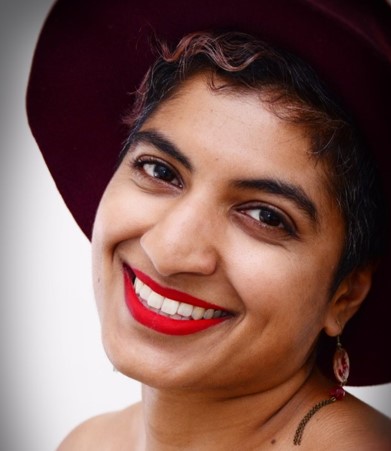Stephanie Fernandez admits it: “The first thing that thrilled me about Homeward Bound was the prospect of adventure and seeing penguins in their natural habitat.”
But the McGill chemical engineering PhD candidate, who has been chosen as one of 100 women worldwide to participate in the program that includes a trip to Antarctica, has a grander vision than simply playing tourist.

“It really attracted me because of the gender equity issue,” said Fernandez, who earned two undergraduate degrees from McGill, one in biochemistry and the other in chemical engineering. “The main goal is to amplify the voice of women in STEMM (science, technology, engineering, mathematics, medicine) and increase their influence and impact, especially in leadership positions because that’s where we are really under-represented.”
Launched in 2016 in Australia, Homeward Bound is a 12-month global leadership program. Fernandez’ cohort begins in March 2021 with an 11-month online collaborative learning course that includes workshops, discussions, coaching and master classes. In early 2022, the 100 participants will assemble from around the world at base camp in Ushuaia, Argentina, where they will take a four-week “face-to-face on-the-ground” course, followed by “the world’s largest all-female expedition to Antarctica.” All of this assumes a globally accepted and accessible vaccine for COVID-19 by travel time.
They – Fernandez chooses the self-identifying pronoun ‘they’ – have started a crowdfunding page to raise the roughly US$17,500 that covers their half of the program’s per-person cost, and is accepting corporate donations through their website and blog and LinkedIn account.
Fernandez, who conducts research at McGill’s Stem Cell Bioprocessing Lab, founded and is the former director of the Graduate Engineering Equity Committee (GEEC), which earlier this year won McGill’s Equity and Community Building award in the Team category.
Climate change, sustainability, gender equity
Fernandez said that the focus of the program, climate change and sustainability in a context of gender equity, was what convinced them to apply.
“It was open to anyone working in a STEMM-related field who is a woman or is female-identifying, and at any stage of their career – early, middle or late. So it’s a pretty diverse bunch of people.”
One of the goals of the program is to “work together to build skills, knowledge and connections that can help empower us to be successful as leaders in our respective fields.”
“Climate change is a major crisis, so this is a nice way to have a focus on all these women to come together to look at one of the big scientific problems that we’re facing, whether or not we specialize in climate change, because I certainly don’t as a biomedical researcher.
“Antarctica is one of the most vulnerable places on the planet, where you can really see the effects of humans. Temperatures are rising… which affects the rest of the globe – the surface temperature affects the flora and fauna and the ecosystem animals [and humans] live in. It highlights how global sustainability is everybody’s responsibility. You don’t have to be an oceanographer or study [greenhouse-gas emissions] to recognize the role you can play.”
Authentic identity
Homeward Bound’s leadership component is particularly important, they noted.
“The questions in the application made me think deeply… on the gender equity issue. We’re often presented with this very narrow vision of this extroverted, often hyper-masculine image of what a good leader should be, which for many of us is at odds with our character. So we might feel like ‘I can’t fill this position’ or ‘I have to change myself to be a great leader,’ and Homeward Bound takes a different approach.”
“That struck me. It’s not ‘We need more women in the fields’, it’s ‘We need more of you as you are, with the authentic identity that you have, and all of the experiences and traits that come with that.’”
Fernandez contacted a participant in a previous edition of the program, who gave them glowing reports of the focus on leadership.
“That’s what I’m looking forward to: exploring your own, unique perspective and strength and developing your own brand of leadership. How you can move forward successfully without necessarily comparing yourself to others.”
Fernandez expects to obtain their doctoral degree this year, and is thinking about what’s next.
They noted that “in engineering, you can feel boxed in; you either go into academia or in industry. I’ve never felt either of those worked for me. I have an intersectional approach and a broad range of interests.”
A friend of a friend with a similar background in biochemistry now lives in Europe and has worked in sustainability, communications and outreach.
“That really appeals to me,” said Fernandez. “It gave me inspiration as to the paths others have taken outside of my bubble here.”
